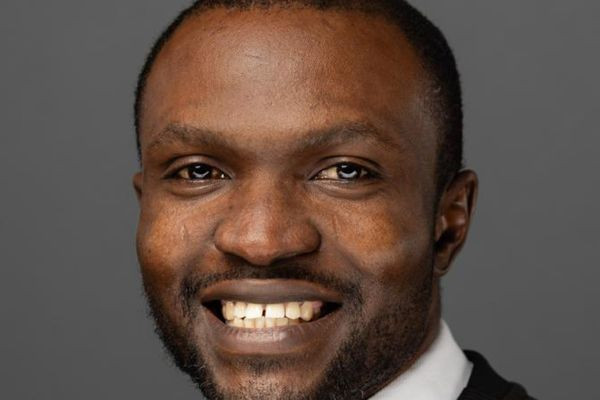In a world rapidly reshaped by artificial intelligence and the global pursuit of digital inclusion, Michael Eneye Abdullahi has emerged as a leading voice in reimagining education across continents. Bridging experiences from Nigeria to the United States, Abdullahi’s career exemplifies a deep commitment to transforming learning through technology, inclusive policy, and human-centered innovation.
Born and educated in Nigeria, Abdullahi’s early work at the Aid for Rural Education Access Initiative (AREAi) laid the foundation for his international influence. As Chief Development Officer, he led the Education Digital Equity Initiative—a UK FCDO-funded program that reached over 45,000 learners across underserved communities. Under his leadership, AREAi launched transformative projects such as the FastTrack Foundation Skills Program and Getting Girls Equal, supported by the Malala Fund, empowering thousands of young women through digital and leadership training.
His initiatives have reflected a vision that mirrors UNESCO and World Bank priorities on digital equity—building bridges where infrastructure and opportunity often fall short. Abdullahi’s approach, blending data-driven design with empathy-driven execution, aligns closely with the United Nations’ Transforming Education Summit framework.
Currently a graduate scholar and research assistant at Boston College’s Department of Educational Leadership and Higher Education, Abdullahi is translating his African experiences into American academic contexts. With a 3.91 GPA in Curriculum and Instruction, his research focuses on equity-based education policy, digital learning in low-resource environments, and teacher workforce development—areas now central to the U.S. Department of Education’s agenda on inclusive, AI-supported learning.
As part of his practicum, Abdullahi teaches Social Studies at Mother Caroline Academy, Dorchester, Massachusetts, where he combines civic engagement with project-based learning and digital tools. His classroom represents a forward-thinking model of AI-augmented education—one that enhances, rather than replaces, the human touch in teaching.
A recipient of numerous awards and fellowships, Abdullahi’s record speaks to his global impact. He was a semi-finalist for the U.S. Department of State’s Mandela Washington Fellowship, an Innocent Chukwuma Social Impact Fellow at Lagos Business School, and a United Nations SDSN Youth Global Innovator. His Boston College UCTC Graduate Scholarship, valued at over $135,000, recognizes his exceptional leadership potential in equitable and urban education.
Earlier distinctions—including the Nigerian Prize for Leadership Award, and international grants from The Pollination Project and ShareYourself U.S.—highlight his consistent ability to turn small initiatives into scalable education models.
Abdullahi’s scholarly contributions further cement his role as a thought leader. His articles, “ChatGPT: A Game-Changer for Personalized Learning in the Digital Age” and “The Impact of Generative AI in Personalized Learning on Students’ Learning Outcomes”, explore how AI can personalize instruction and improve engagement, aligning with UNESCO’s 2023 Guidelines for Generative AI in Education.
Through both research and practice, Abdullahi advances what he calls “AI for Instructional Justice”—ensuring that emerging technologies empower underrepresented learners rather than widen existing inequalities. His vision anticipates the next phase of AI literacy, where teachers act not just as instructors but as ethical mediators in tech-driven classrooms.
From Abuja to Boston, Michael Eneye Abdullahi’s journey embodies a new kind of global educator—one who proves that digital equity is not merely about access to devices, but about access to opportunity, inclusion, and dignity.
As education systems worldwide grapple with the ethical integration of AI, Abdullahi’s work offers a roadmap for sustainable, inclusive innovation. His career stands as a testament to how local ingenuity from Nigeria can shape the global dialogue on education reform, bridging divides between North and South, policy and practice, analogue and digital.
In every sense, Michael Eneye Abdullahi represents the 21st-century educator: grounded in equity, driven by innovation, and guided by the enduring belief that education remains humanity’s greatest equalizer.
follow us on whatsapp
https://whatsapp.com/channel/0029VaAOIUe9mrGeBhrju12b
Download our Mobile App for easy access
https://play.google.com/store/apps/details?id=com.edutvmobile.ng&hl=en
Mobile App Lite
https://play.google.com/store/apps/details?id=com.edutvng.lite
https://play.google.com/store/apps/details?id=com.edutvmobile.ng&hl=en
Follow us on Youtube
https://youtube.com/@edutvnigeria
Follow us on LinkedIn -
https://ng.linkedin.com/company/edutvnigeria
Follow us on Instagram
https://instagram.com/edutvnigeria
Follow us on Facebook
https://www.facebook.com/edutvnigeria/









